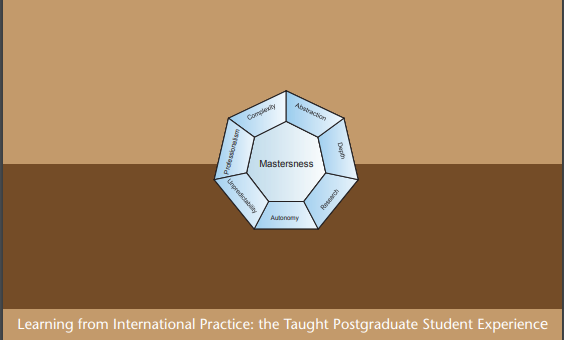Introduction
The need to be more ‘autonomous’ and ‘self-directed’ can be one of the more daunting challenges facing new TPG students, especially if you’ve been used to a greater level of instruction and guidance in your previous university experiences.
It’s true that at TPG level you’re expected to take more personal responsibility and initiative for your learning, but there’s a bit of a common misconception that this means you have to do everything yourself.
On the contrary, working collaboratively is a common feature of TPG study, and managing your relationships with other learners, as well as tutors and other staff, is an important element of being an autonomous, self-directed learner.
So what does being more autonomous actually mean? Let’s take a look.
What is Autonomy?
The QAA Mastersness project defines autonomy as ‘[t]aking responsibility for [your] own learning in terms of self-organisation, motivation, location, working with others and acquisition of knowledge’ (QAA, 2014).

It’s important to understand that autonomy does not mean doing everything yourself. You’ll still have support, guidance and instruction from your tutors, supervisors, or other staff. It’s just that there may not be quite so much guidance and instruction as you’ve been used to in the past, and you might be expected to be more proactive in a lot of areas, including asking for any extra support you need.
In terms of your learning, there will still be classes and assessments and deadlines. But you might be expected to prepare more for classes and contribute to the discussions and activities taking place. And you may be expected to go off after the class and conduct your own further research into areas of interest or importance.
As for assessment, you’ll sometimes have more of a say in the focus of that assessment, particularly when it comes to choosing a dissertation topic. And when it comes to conducting research for your assignments, whilst you will still have lecture materials and resource lists to draw on, you’ll be expected to go beyond these basic starting points and to conduct more focused and rigorous research to inform your work.
In both your learning and your assessment, you’ll need to be organised, and manage your time effectively. You’ll be expected to attend classes and make assessment deadlines or, where you can’t, to be proactive about following University and School procedures to catch up. If this sounds like a lot to take on board don’t worry – it’s a process, and you’ll become more comfortable with it over time. It’s all about being proactive and in control of your own learning.
Setting and Managing Expectations
It’s important that you have realistic expectations, both of yourself and others.
As regards the former, it’s natural to want to feel that you’re doing well from the outset. Nevertheless, there is plenty of evidence to suggest that there is a (sometimes lengthy) adjustment process for students transitioning onto taught postgraduate programmes. Accepting this fact and recognising that it’s ok not to be perfect and that you will grow into the role will significantly reduce the pressure you place yourself under, and ensure you are tackling challenges and setbacks in a more positive frame of mind.
Understanding what you can expect from tutors and other staff will also help you to navigate the uncertainties. As we’ve already seen, there is an expectation that TPG students show greater autonomy. How this manifests itself in terms of your relationships with tutors and staff will vary, and it can often be a good idea to explore potential ground rules in an early class.
Finally, you should think about your expectations of your fellow students. Giving some thought and planning to how you work and interact with your peers is an important element of expressing your autonomy and professionalism as a student. In some cases, you may be undertaking a group assessment where working effectively together will lead to better marks.
And even where there’s no assessment involved, working collaboratively with fellow students – both inside and outside of the classroom – is usually an enriching experience. So give some thought to what you’ll expect from your peers, and what they can expect from you. Don’t forget everyone is different, bringing different expectations and attributes to the table. Be open-minded in your expectations as to what individuals can contribute to the whole.
Practical ways to develop your autonomy
- Develop a ‘check first’ approach. If you have a question about your course, try finding the answer yourself in the handbook or on My Dundee. If you can’t find the answer, ask someone – a tutor or classmate for example
- Have a growth mindset. Base your expectations around the idea of improvement and don’t put yourself under pressure to be perfect. Set some modest goals as steppingstones to your ultimate targets
- Network – work hard on your relationships with classmates, tutors and the wider university community. Over time you’ll identify a network of trusted collaborators and supporters
Summing Up
Becoming more confident in your ability to work autonomously and proactively is a challenge to be embraced, not feared. Not only will it make your time at university more successful and enjoyable, it will also allow you to develop a skillset that will be highly attractive for future employers, for whom autonomy is a highly sought-after graduate attribute.
Recognise that autonomy doesn’t mean going it alone – it means taking control of your own learning, whilst working effectively with peers and tutors and recognising when you need to ask for help or support.
